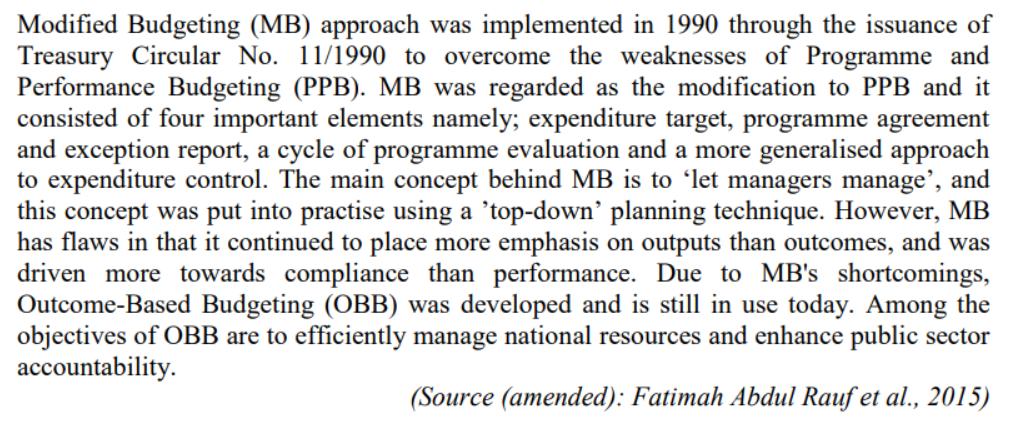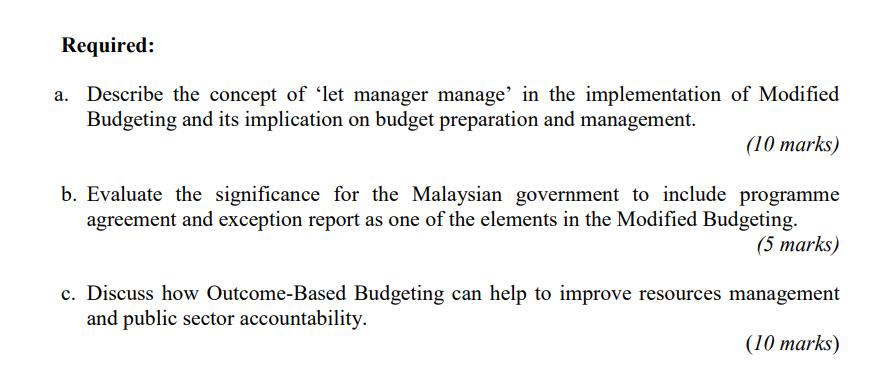Answered step by step
Verified Expert Solution
Question
1 Approved Answer
Modified Budgeting (MB) approach was implemented in 1990 through the issuance of Treasury Circular No. 11/1990 to overcome the weaknesses of Programme and Performance


Modified Budgeting (MB) approach was implemented in 1990 through the issuance of Treasury Circular No. 11/1990 to overcome the weaknesses of Programme and Performance Budgeting (PPB). MB was regarded as the modification to PPB and it consisted of four important elements namely; expenditure target, programme agreement and exception report, a cycle of programme evaluation and a more generalised approach to expenditure control. The main concept behind MB is to 'let managers manage', and this concept was put into practise using a 'top-down' planning technique. However, MB has flaws in that it continued to place more emphasis on outputs than outcomes, and was driven more towards compliance than performance. Due to MB's shortcomings, Outcome-Based Budgeting (OBB) was developed and is still in use today. Among the objectives of OBB are to efficiently manage national resources and enhance public sector accountability. (Source (amended): Fatimah Abdul Rauf et al., 2015) Required: a. Describe the concept of 'let manager manage' in the implementation of Modified Budgeting and its implication on budget preparation and management. (10 marks) b. Evaluate the significance for the Malaysian government to include programme agreement and exception report as one of the elements in the Modified Budgeting. (5 marks) c. Discuss how Outcome-Based Budgeting can help to improve resources management and public sector accountability. (10 marks)
Step by Step Solution
★★★★★
3.56 Rating (156 Votes )
There are 3 Steps involved in it
Step: 1

Get Instant Access to Expert-Tailored Solutions
See step-by-step solutions with expert insights and AI powered tools for academic success
Step: 2

Step: 3

Ace Your Homework with AI
Get the answers you need in no time with our AI-driven, step-by-step assistance
Get Started


